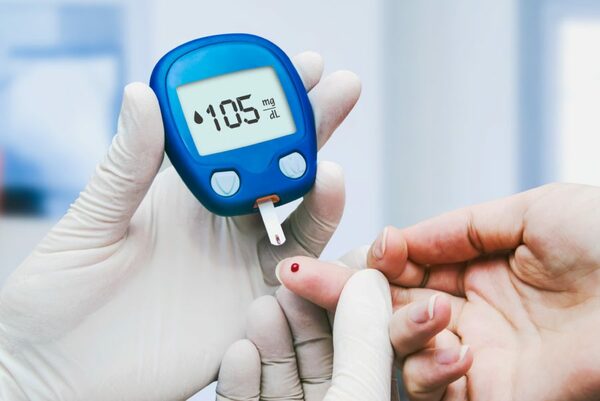Notifications
ALL BUSINESS
COMIDA
DIRECTORIES
ENTERTAINMENT
FINER THINGS
HEALTH
MARKETPLACE
MEMBER's ONLY
MONEY MATTER$
MOTIVATIONAL
NEWS & WEATHER
TECHNOLOGIA
TV NETWORKS
VIDEOS
VOTE USA 2026/2028
INVESTOR RELATIONS
COMING 2026 / 2027
ALL BUSINESS
COMIDA
DIRECTORIES
ENTERTAINMENT
FINER THINGS
HEALTH
MARKETPLACE
MEMBER's ONLY
MONEY MATTER$
MOTIVATIONAL
NEWS & WEATHER
TECHNOLOGIA
TV NETWORKS
VIDEOS
VOTE USA 2026/2028
INVESTOR RELATIONS
COMING 2026 / 2027
About Me
 Scarlett Watson
Scarlett Watson I am a professional writer and blogger. I’m researching and writing about innovation, Blockchain, technology, business, and the latest Blockchain marketing trends.
 Scarlett Watson -
June 1, 2023 -
Health -
Diabetes treatment in Dubai
Diabetes treatment
-
854 views -
0 Comments -
0 Likes -
0 Reviews
Scarlett Watson -
June 1, 2023 -
Health -
Diabetes treatment in Dubai
Diabetes treatment
-
854 views -
0 Comments -
0 Likes -
0 Reviews

Diabetes has been a chronic disease for many years, affecting millions worldwide. Over the years, medical professionals have worked tirelessly to develop new treatments and techniques to improve the lives of people with diabetes. Today, we have access to cutting-edge innovations that have revolutionized how diabetes is treated, managed, and prevented. In this blog post, we'll explore some of the most promising advancements in diabetes treatment and the path they pave towards a healthier future.
Diabetes is a chronic disease affecting millions of people worldwide, and Dubai is no exception. In fact, according to the International Diabetes Federation, over one million people in the United Arab Emirates have diabetes, making it one of the top ten countries with the highest prevalence of the disease.
The current state of diabetes treatment in Dubai is primarily focused on managing the symptoms of the disease rather than addressing the underlying causes. The traditional approach to diabetes treatment involves lifestyle changes, such as maintaining a healthy diet, exercising regularly, and taking medication to control blood sugar levels.
While these treatments can be effective, they do not address the root cause of the disease, which is insulin resistance. As a result, many people with diabetes in Dubai struggle to manage their condition and may experience complications such as nerve damage, kidney disease, and vision loss.
In addition, access to diabetes treatment in Dubai can be challenging for some patients. While many clinics and hospitals offer diabetes care, some people may face barriers to accessing these services, such as high costs or lack of transportation.
Overall, the current state of diabetes treatment in Dubai highlights the need for innovative approaches to managing and preventing the disease. By focusing on the root causes of diabetes and improving access to care, we can help people with diabetes lead healthier, more fulfilling lives.
Diabetes is a chronic condition that affects millions of people worldwide. It is a condition where the body cannot regulate blood sugar levels, leading to a host of health complications if left uncontrolled. While there are treatment options available for managing diabetes, there is a need for innovation in this field to provide more effective and personalized treatments for patients.
One of the main challenges in diabetes treatment is the complexity of the disease. Diabetes is not a one-size-fits-all condition; multiple factors can contribute to its development and progression. Additionally, each patient's diabetes may manifest differently, meaning that no single treatment approach will work for everyone.
Another issue with current diabetes treatments is the need for continuous monitoring. People with diabetes must constantly check their blood sugar levels and adjust their treatment plans accordingly. It can be tedious and time-consuming, making it difficult for patients to stay on top of their condition.
To address these challenges, there is a need for innovation in diabetes treatment. New Research and technology are making it possible to develop more effective treatments personalized to each patient's needs. For example, continuous glucose monitoring systems can provide real-time feedback on blood sugar levels, making it easier for patients to adjust their treatment plans on the go.
Researchers are also exploring new therapies and treatment options that can help manage diabetes more effectively. For example, some scientists are developing a vaccine that could cure diabetes by targeting the immune cells that attack the pancreas, the organ responsible for producing insulin.
Overall, there is a clear need for innovation in diabetes treatment. With the help of new Research and technology, we can develop more effective and personalized treatments to help people with diabetes lead healthier, more fulfilling lives. By investing in diabetes research and improving access to treatment, we can progress towards a brighter, healthier future for everyone with this condition.
Diabetes treatment has come a long way since the discovery of insulin in the 1920s. Today advances in medical Research and technology are paving the way for a new era of diabetes treatment.
One of the most promising breakthroughs in diabetes research is the development of closed-loop systems, also known as artificial pancreas. These systems use continuous glucose monitors (CGMs) to measure blood sugar levels in real time and automatically adjust insulin dosing to keep blood sugar levels in a healthy range. This technology has the potential to revolutionize diabetes treatment by significantly reducing the burden of diabetes self-management and improving overall glycemic control.
Another breakthrough in diabetes technology is the development of non-invasive glucose monitoring devices. Traditional glucose monitoring methods involve pricking the finger to draw blood for glucose testing. Non-invasive glucose monitoring devices, such as sensors that can be placed on the skin, use light or sound waves to measure glucose levels without the need for needles. This technology could make diabetes self-management less painful and more convenient for patients.
Advances in gene editing technology are also opening up new avenues for diabetes treatment. Scientists are exploring gene editing to create insulin-producing cells that could be transplanted into people with type 1 diabetes, potentially providing a cure for the disease.
Finally, digital health tools, such as mobile apps and telemedicine platforms, make diabetes self-management more accessible and convenient for patients. These tools allow patients to track their blood sugar levels, receive coaching from healthcare providers, and access diabetes education and support from anywhere, anytime.
The future of diabetes treatment is bright, with continued investment in Research and technology driving innovation in the field. As these breakthroughs continue to improve diabetes care, we can look forward to a healthier future for people living with diabetes.
As mentioned earlier, diabetes is a complex disease with different underlying causes and factors. One of the most promising avenues for improving diabetes treatment is through personalized medicine. This approach recognizes that every patient is unique and requires customized care that considers their needs, genetics, lifestyle, and environment.
Personalized medicine in diabetes treatment can involve various approaches, such as genetic testing to identify genetic variants associated with diabetes risk, tailoring medication dosage to an individual's body weight and blood glucose levels, and creating personalized diet and exercise plans.
For instance, researchers have found that specific genetic variants are linked to a higher risk of developing type 2 diabetes. By identifying these variants, healthcare providers can recommend preventative measures or early interventions to delay or prevent the onset of the disease. Additionally, medications such as Metformin, which is commonly used to treat diabetes, may not work the same way for all individuals. By tailoring the dosage of this medication to each patient, healthcare providers can achieve better glucose control and reduce the risk of side effects.
Personalized medicine is still in the early stages of development. Still, it holds tremendous promise for improving diabetes treatment outcomes and quality of life for millions living with it. However, it's important to note that access to personalized medicine is unequal across populations. Marginalized communities and low-income individuals may face barriers to personalized medicine due to cost, lack of healthcare providers, or health disparities.
In the next section, we'll discuss ways to improve access to diabetes treatment and ensure all individuals receive the care they need to live healthier lives.
Despite the significant advances in diabetes treatment in recent years, many individuals still struggle to access the care they need. For many people, location, cost, and lack of insurance or healthcare resources prevent them from receiving the care and treatment necessary to manage their diabetes effectively.
Thankfully, there are several initiatives aimed at improving access to diabetes treatment. For example, organizations such as the American Diabetes Association are working to increase awareness and education about diabetes while also advocating for policies that improve access to healthcare and affordable treatments. It includes efforts to expand insurance coverage and reduce the cost of medications and medical supplies.
Additionally, new technology is making it easier for individuals to manage their diabetes from the comfort of their own homes. Continuous glucose monitors (CGMs) and other digital health tools empower people with diabetes to track their blood sugar levels and other health metrics in real time, giving them more control over their condition and improving their ability to self-manage their diabetes.
Ultimately, improving access to diabetes treatment requires a multifaceted approach that addresses the social, economic, and technological barriers to care. By continuing to innovate and advocate for change, we can work towards a future where everyone has the resources and support to lead healthy, fulfilling lives with diabetes.
